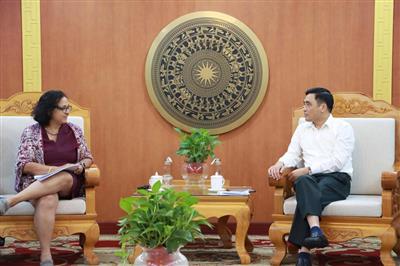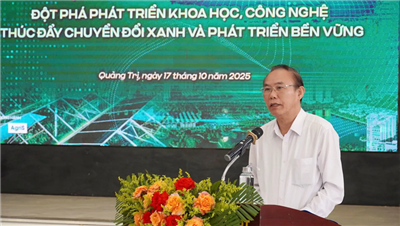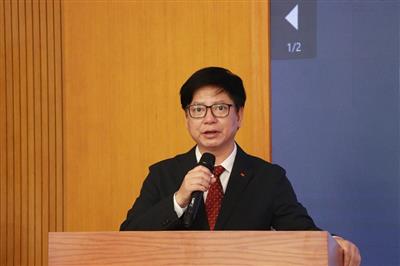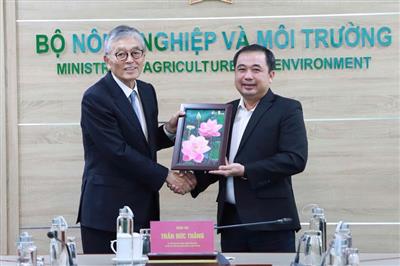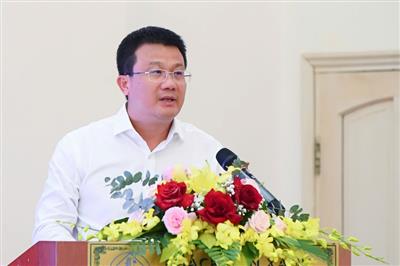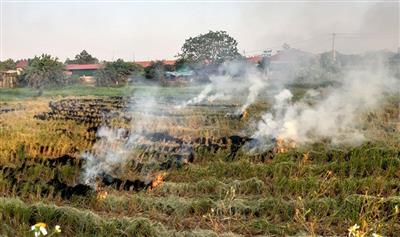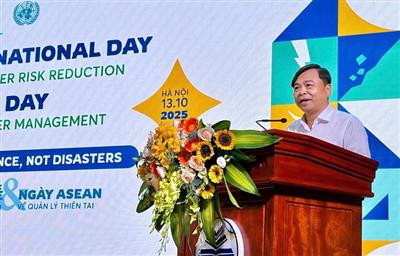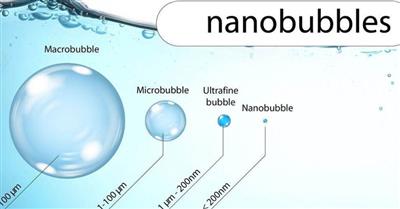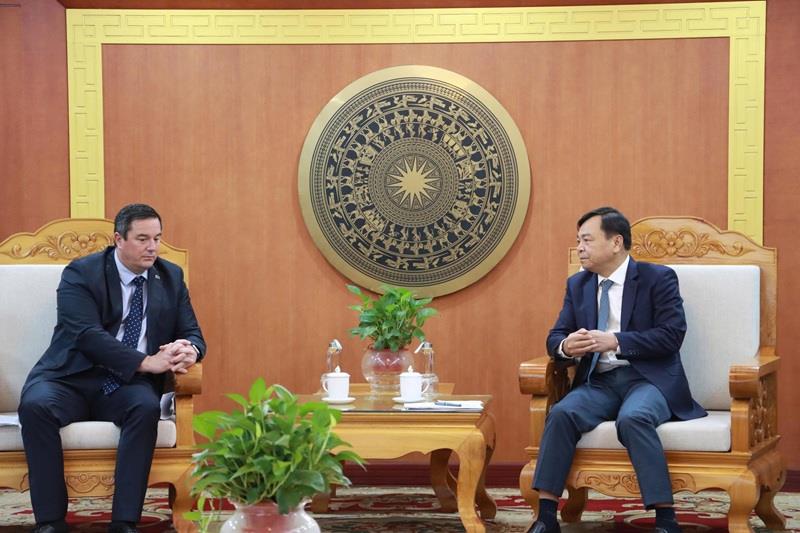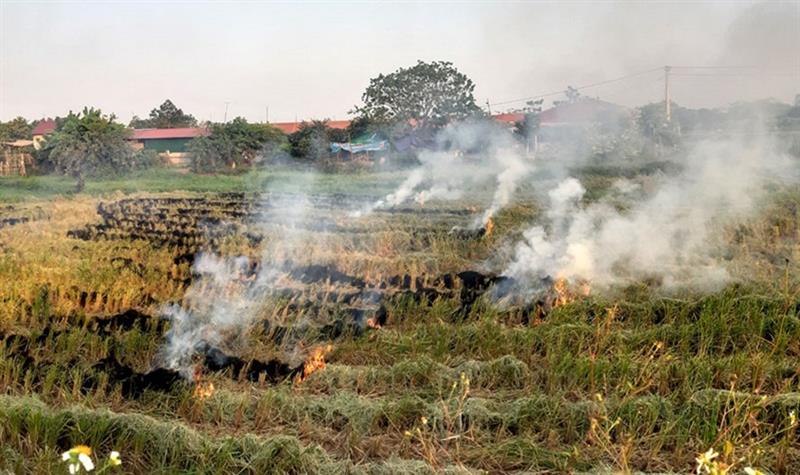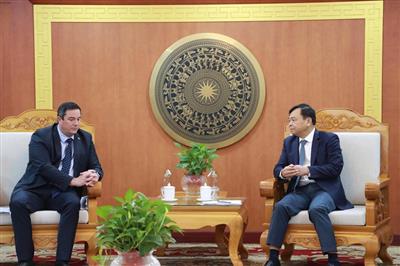
Vietnam towards a global agreement on plastic waste in Busan
11/11/2024TN&MTOn November 5, the Ministry of Natural Resources and Environment, in collaboration with the United Nations Development Programme (UNDP) and the World Wildlife Fund (WWF) in Vietnam, organized a technical workshop titled “Towards Busan - A Scenario for Vietnam.”
The workshop took place ahead of the fifth session of the Intergovernmental Negotiating Committee on the Global Agreement on Plastic Pollution (INC-5), set to occur from November 24 to December 1, 2024, in Busan, South Korea. Its aim is to facilitate consultations and build a negotiating approach and roadmap for Vietnam.

Mr. Le Ngoc Tuan, Director General of the Department of International Cooperation (Ministry of Natural Resources and Environment), delivering the opening speech at the workshop
This workshop underscores Vietnam’s strong commitment to engaging actively in global discussions on plastic pollution. The comprehensive preparations and close collaboration among stakeholders are intended to support Vietnam’s position at INC-5, working toward a sustainable future once the agreement is in place.
In his opening remarks, Mr. Le Ngoc Tuan, Director General of the International Cooperation Department at the Ministry of Natural Resources and Environment, emphasized that plastic pollution is a severe and pressing challenge, calling for a prompt legal framework to address this issue.
After two years of negotiations, the world now stands at a critical juncture, ready to finalize a legally binding global document on plastic pollution at INC-5, officially convening in Busan in just a few weeks.
Securing a global agreement at INC-5 is seen as an ambitious target. There remains substantial work to narrow the differences, even opposing views, among countries and regions on matters such as plastic production, supply chains, hazardous chemicals, and financing mechanisms, with only seven negotiation days left in South Korea.
Once adopted and implemented, the agreement is expected to significantly impact Vietnam and the global economy and society, potentially transforming the plastic economy from product design to production, consumption, disposal, and recycling.
"It is, therefore, crucial to thoroughly prepare the content for the Vietnamese negotiation delegation attending INC-5 in Busan, particularly focusing on areas impacting Vietnam, including legal policies and technical barriers (if any). This is also the purpose of today’s workshop," noted Mr. Le Ngoc Tuan.
In preparation for the INC-5 negotiations, on October 30, 2024, the President of the Negotiating Committee released an Informal Document and invited countries to use it as a basis for negotiations at INC-5. Accordingly, the technical workshop focused on discussing key issues:
First, determining whether Vietnam should support using the Informal Document as an official negotiation basis in Busan. If so, it is essential to assess its content, identifying elements that Vietnam can endorse and those requiring further coordination with like-minded countries to either include or exclude from the document. This assessment would be based on a preliminary review of the anticipated impacts of the agreement’s proposed provisions.
Second, forecasting the Convention’s likely impacts on Vietnam’s policies, strategies, and planning, particularly in areas such as plastics, chemicals, waste management, and international cooperation. This will inform the Ministry of Natural Resources and Environment and other agencies in developing a comprehensive strategy to conclude the Convention negotiations.

Mr. Vu Thai Truong, Acting Head of Environment and Climate Change at UNDP Vietnam, speaking at the workshop
In his remarks, Mr. Vu Thai Truong, Acting Head of the Environment and Climate Change Unit at UNDP Vietnam, highlighted that, in supporting Vietnam, the National Plastic Action Partnership (NPAP) has played an important role in promoting dialogue and stakeholder engagement on this vital issue.
To support Vietnam’s preparation for INC-5, UNDP Vietnam proposed four key focus areas:
First, a suitable agreement that protects national interests. Negotiating parties must ensure commitments align with Vietnam’s priorities, such as limitations on primary plastic production, control of hazardous chemicals, and effective tax and fee mechanisms.
It is crucial for stakeholders to carefully consider non-negotiable elements for Vietnam and those that may be flexible during the negotiation process.
Second, assessing economic, social, and environmental impacts. Vietnam should review proposed measures such as bans on single-use plastics or limits on plastic production to understand their effects on its economy, society, and environment. This will ensure readiness among Vietnamese businesses and industries related to plastics, particularly in the $25 billion plastic manufacturing sector.
Third, securing financial and technical support. Vietnam should advocate for provisions in the agreement that provide financial, technical, and capacity-building support for developing countries. This includes assistance for vulnerable groups, such as informal workers, small and medium-sized enterprises, and industries reliant on plastic production.
Finally, Vietnam needs to prepare for compliance with the agreement by domesticating the international treaty. To meet international commitments, Vietnam should consider beginning to amend relevant legislation across various sectors such as product design, chemical control, waste management, extended producer responsibility, and tax and fee policies.
This will require cooperation among various ministries, including the Ministry of Industry and Trade, Ministry of Agriculture and Rural Development, Ministry of Health, Ministry of Finance, and Ministry of Natural Resources and Environment.

Ms. Nguyen Thi Dieu Thuy, Director of the Plastic Waste Reduction Program at WWF Vietnam, speaking at the workshop
Supporting Vietnam since the early days of the global plastic agreement negotiations, Ms. Nguyen Thi Dieu Thuy, Program Director for Plastic Reduction at WWF-Vietnam, also proposed four key issues for inclusion in the INC-5 negotiations:
First, regulations for the elimination of harmful plastics. WWF recommends that countries agree on a list of harmful plastic products and chemicals to be banned, prioritizing those posing significant risks to health and the environment.
Second, sustainable product design. The agreement should set globally unified product design standards, ensuring reusability and recyclability to support a circular economy. This will provide clear standards for businesses and encourage innovation in plastic recycling and reuse.
Third, ensuring adequate financial resources. A comprehensive financial package is essential for effective implementation of the agreement. WWF envisions the agreement including financial resources and technical support, especially for low-income countries, to ensure equity and sustainability.
Finally, a flexible and enduring mechanism. To address evolving challenges, the agreement should allow updates and adjustments based on new scientific evidence. This will ensure the agreement’s immediate and future relevance.
At the workshop, participants discussed potential scenarios for Vietnam, focusing on key issues such as hazardous chemicals, plastic production and supply chains, and financing mechanisms.

Delegates attending the workshop
Dr. Pham Van Hieu, an expert from the Ministry of Natural Resources and Environment, shared analyses on negotiation documents and important considerations for Vietnam. Updates from mid-term meetings and informal documents from the INC chair were also reviewed, underscoring the importance of chemical regulation and reducing primary plastic production.
Additionally, Mr. Hoang Thanh Vinh, a plastic waste and circular economy expert at UNDP, noted that potential agreement provisions for controlling and eliminating concerning chemicals in plastic production could impact Vietnam's plastic industry, worth over $20 billion.
As Vietnamese companies may not yet have alternative chemical solutions available, this could increase production costs, affect exports, reduce competitiveness for Vietnamese plastic products, and impact the employment of nearly 300,000 workers in the plastics industry.
With the aim of concluding the legal negotiation process to end plastic pollution, INC-5 is expected to present multiple scenarios for the ongoing negotiation process.
Ngoc Huyen (NRE Newspaper)


